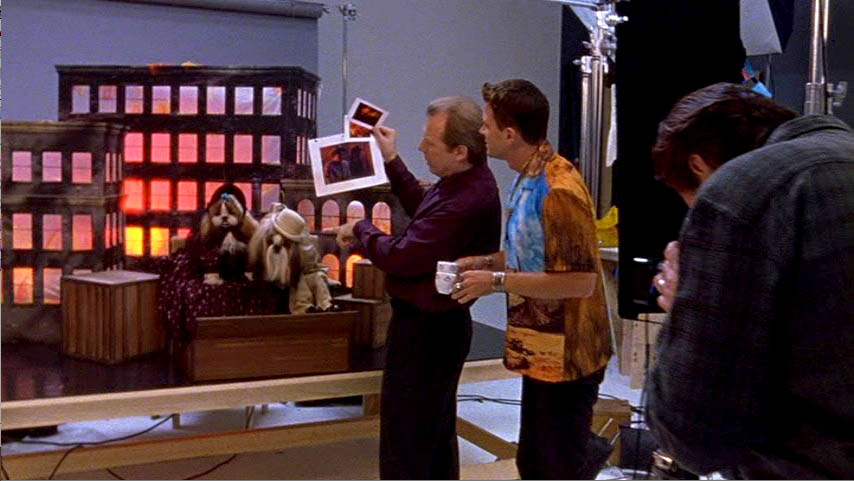Joseph T. Garrity

AS: Do you feel you have your own, emotional response to the script that plays into your choices?
JG: Absolutely and that has to jibe with the director. A good director is open to interpretations and open to what people are bringing to the plate and what they have to say and what the response of his chief visual collaborators are. To allow this to be the look of this film because of these particular people who were chosen to be the visualisers. And to find that thing that we can all wrap ourselves around and we’re all in agreement to try to preserve as we go into this together. That’s good collaboration. We stress that here at the school a lot because it doesn’t always happen. You’ve got massive egos and controllers. People that believe that unless it’s their idea it’s not gonna work.
AS: It’s not a guy painting in his basement…
JG: If that’s what you want to do you should paint. You have to be able to work and collaborate with talented people. Not all collaborations are great but when they’re good you’ll try to stick with the same people if you can.
AS: You worked with Christopher Guest and that group, what was that like?
JG: That was great. He’s a very neat guy and a very quiet guy and talented and smart. I met him on this movie, I interviewed cold with him on this thing called the Big Picture which was his first as a feature film director. He chose me. It was weird- he was a weird interviewer, but it worked and he brought me back on all his feature films ever since so that was good. He and I were the right kind of merging of people. He’s a quiet guy who doesn’t want to be bombarded with anybody buttering up to him. There’s a certain quality of people that I think he likes around him. I kind of maybe fit that and also I delivered the look that he wanted and that I wanted for those films.
AS: It was like seven movies?
JG: It was the Big Picture, and then it was Attack of the 50 Foot Woman which was an HBO thing and then there was Waiting for Guffman and then there was Almost Heroes which was a comedy with Chris Farley- it was his last film- it wasn’t that successful but it was a big movie, and then it was Best in Show, the dog show one, and A Mighty Wind which was about folk music and For Your Consideration which was the movie story he did. And the Big Picture was the first one. We’ve done a couple of other things- pilots that never went anywhere. We’ve done a few things together- he’s great.
AS: You’ve touched on a few but what are the best attributes to have if you want to be a production designer?
JG: Collaboration. And being adaptable. To adapt to change well I think is really important. If you’re a super logical person that would make you go berserk- you’ve got to be a little crazy. And you’ve got to also realize that there’s a deadline. You’ve got to be good with deadlines. You’ve got to be good with budgets. And you’ve got to be a good people person because you’ve got to get up there and you’ve got to sell an idea and you’ve got to do that well. Cause there’s a lot of money that people are going to let you spend to do something. And you want to be clear and excited and be able to stand behind your idea and sell it well visually. You know you have to interview well… You’ve got to be a problem solver too. You want to be the person who says, okay here’s what we do. That’s some of the qualities I think. Good people skills, being adaptable to the kind of people you’re working with. Because people that you’re working with change all the time. There are directors that need a lot more hand-holding and there are directors that are going to be very, very in-your-face. So you’ve got to be able to adapt to all those kinds of things and being a problem solver is a really good— being the essential person in the room. Some designers are very quiet and just do as they’re told. The better designers have great ideas and solve problems and come up with great solutions.
Just watched Mr. CHURCH and found your name. I’m a Garrity also so it was neat to see it. I really enjoyed Mr. CHURCH and will now be watching the others mentioned, beginning with Waiting for Guffman. Nice to meet you.
….Joe – happy for you. Wonderful life you’ve designed. Continued good fortune to you!